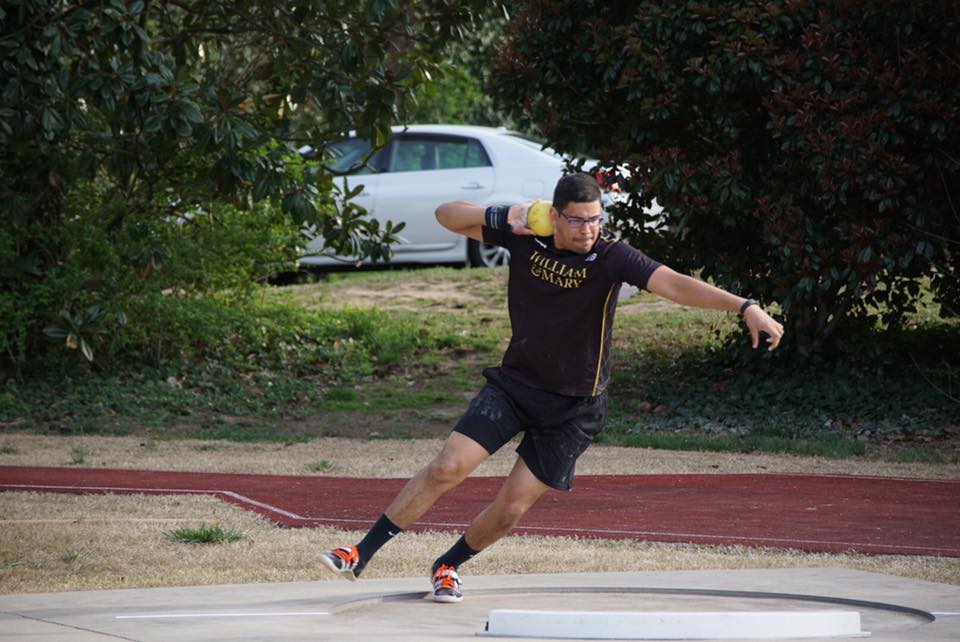Track And Field: 11 Ways It Will Change Your Life
Track and field will change your life. It doesn’t matter if you do it in middle school, high school, or even collegiately. It’s simple. The way you improve in track is by jumping higher, throwing further, or running faster than you ever have before. To some, this is a simple concept. But every track athlete learns that it’s not so simple. In this blog posts, I’ll be covering the 11 way that track and field will change your life.
11. It will humble you.
Olympic lifting and track and field have a lot in common. Mainly, they’re both individual sports that will spit in your face if you ever disrespect it. Track allows you to have a mentality shift. One of my coaches always said: “Be careful. Any time you’re not working, your competition is”. It’s true! The competition in college is even more fierce than high school.
I wasn’t mature even to realize this in high school. For that reason, my freshman year at William & Mary was incredibly frustrating. I suffered greatly because I was not mentally prepared to deal with this. I would do anything to go back to humble myself.
My advice to incoming collegiate student athletes: Humble yourselves. Putting up high ranking numbers in high school is easy. Doing that in college is another story.
10. You learn that coaches are the greatest mentors.
You will have several coaches throughout your coaches. As you mature, it’s important to have open and honest communication with your coach. Think about it like this: your coach is an extension of your brain. In practice, track and field athletes can get in their heads about missed times or heights, but at that point, listen to your coach. They are mentoring you for a reason.
Therefore, do not let your emotions get in the way. Instead, listen to their judgement and work together to get better. As I grew as an athlete, I spent more of my time listening rather than speaking. If my coach was giving me a cue, instead of thinking “But I’m already doing that cue!” I would always try it.
Overall, listen to your coach. If they have several years of experience, they know more than you. Learn to listen and take constructive criticism.
9. You learn that you can only give your best.
I was able to walk away from track and field knowing that in my last year, I gave it everything that I had. In college, I certainly didn’t have my priorities in order. I wanted to be social and go out and be a regular college student. But as a Division 1 student athlete, if you want to be successful, you don’t really have that choice.

Everyday, you have to give your best. It doesn’t matter what all your other friends are doing. In essence, there comes a point when you have to treat your body as a temple. It will require you to take a lot of sacrifice. However, this means that when you leave your last competition, you’ll know that you gave it everything you had.
In order to do your best, you have to have the right resources. As a track and field athlete, my first suggestion would be that you first go to our Track Spikes Buying Guide post. In this post, we breakdown the best track spikes for each event. If you’re a thrower, I would look at our Throwing Shoes Buying Guide. This’ll give you our top three selections for throwing shoes.
8. You learn to manage your time.
In college, regular students have plenty of free time. Depending how many extracurriculars they have, students can often spend hours and hours at the library. Student athletes, on the other hand, cannot do this. We are on a time crunch because we have a 20-40 work week in addition to getting our degrees.

By limiting the time we have to complete an assignment, it puts the pressure on. If anything, this is a great way to practice competition. Adrenaline is going. Caffeine is certainly in your system. You just have to get the job done.
Don’t get me wrong, being a student is your first job. But, taking care of your academics allows you to keep competing. You’ll have to get work done in less amount of time and strive to be the best in the class. Leverage your resources and find ways to efficiently work so you can fully understand your two majors: your college issued major and your track event.
7. You graduate high school/college with a PHD in your track event.
This leads me into my next point. In order to become an expert on anything, it will require a lot of experience and a lot of learning. Some people learn by doing, and others learn by reading. However, to be able to fully compete at the best level, you need to understand the technical aspects of your event.
Think about it: If you only do track and field in high school, by default, you already know more than 99% of the population about that event.
One of my favorite things about track and field is how deceitful it is. Track and field athletes look like they’re not even trying when they’re running. But that’s only because they’ve practiced it time and time again. When competing, you have to observe the best. Learn the mechanics and technique. Stay up to date with technical changes of the greats. Learn what works best for you and become obsessed with making science work with you rather than against you.
6. Don’t forget to stretch.
Seriously. Don’t forget to stretch. I didn’t even realize this in high school. I did not take stretching seriously, and lacked serious mobility. I actually didn’t even know what a foam roller was before getting to college. Use your resources. Even if you don’t feel like it, always stretch after practice and lifts. It will make such a difference in injury prevention.
My sophomore year, I suffered from a near grade-3 calf strain. I could’ve prevented this if I had actually taken stretching seriously. Instead, I spent 3 months rehabbing my calf strain and working on it everyday. I wasn’t able to redshirt my sophomore year, but my calf strain helped me learn more about myself. From that point on, I made it a point to stretch every time I got from a workout.
At one point, I actually ended up joining ROMWOD (not sponsored by them, but would highly recommend) and using them for about 3 months. It helped me drastically in my junior year, and helped my mobility leading into championship season.
5. Competitors are always competitors, but they are friends too.

Remember that your competitors are also potential friends. Some of my best friends are people that I have compete against. I actually competed against people who eventually became my teammates. The track and field community is so close and everyone knows each other. It’s important to make yourself a community figure rather than a loner. This way, you’ll not only have your team, but also other people cheering for you as you enter the circle.
I read a quote once that throwers have once thing in common: they all want to throw far when they enter a circle. Same thing applies to all track and field athletes. This conquest towards a mutual goals has brought along some of the greatest friends I could ever ask for.
4. You learn to not compare yourself to others.
Track and field is simply a numbers game. If the person next to you runs a better time, you lose. It’s as simple as that. Therefore, it’s incredibly easy to get wrapped up in the numbers. I had several friends and even coaches that were glued to Milesplit or TFRRS. They would constantly stay updated with their times and would look to see how people improve throughout the season.
I highly recommend all track and field athletes to stay away from both websites. If you’re good enough, you’re going to know if you made a meet or not. The problem with these two sites is that it just provides numbers. One of my favorite things about the summer in high school was having the ability to work and work on my craft. This allowed me to open up 5 feet further than last years PR, completely stunning my competition.
3. Track will make you appreciate the moment.
Some of my favorite moments in track and field are events I simply do not remember happening. I was so lost in the “zone” that I lost all sense of reality. It was only until after hitting a big PR that I would come back to reality.
When the adrenaline comes down, you learn to appreciate the moment. Those moments can be so emotional, but it’s important to remain cool and collected. Especially if it’s the first throw or first race of your day.
2. Never show frustration in a competition.
Not only does this make it awkward for your competitors, it also makes life for your coach a lot harder. If you’re already in a meet with your head down after a poor first attempt, how will you recover? Will you allow one attempt to ruin your day or will you come back?
One of my roommates was excellent at coming back from adversity. I can’t tell you how many times he came back from two fouls on a throw, and threw a PR on his third throw to bring him to finals. It certainly makes things entertaining, but his ability to remain level-headed was something I always admired.
1. Your parents are your rock. Make sure to celebrate with them.
One of my greatest memories is making my call to William & Mary to commit as a Division 1 athlete. Whoever looks after you, make sure to look out after them. In your success, make sure to include them. If your parents are not in your life, then consult a coach. Make sure to celebrate with the people who saw you grow from the start.
Conclusion
Track and field. It can teach us so much about life. I’m sure I can come up with 50 other things that it taught me, but these feel like the most important. I am so appreciative of all the friends I’ve made because of this sport. I am incredibly thankful for the coaches that spoke into my life. Thank you all for making me better.
Now, you. Will you join track and field and allow it to change your life?
As always, run fast, jump high and throw far!


